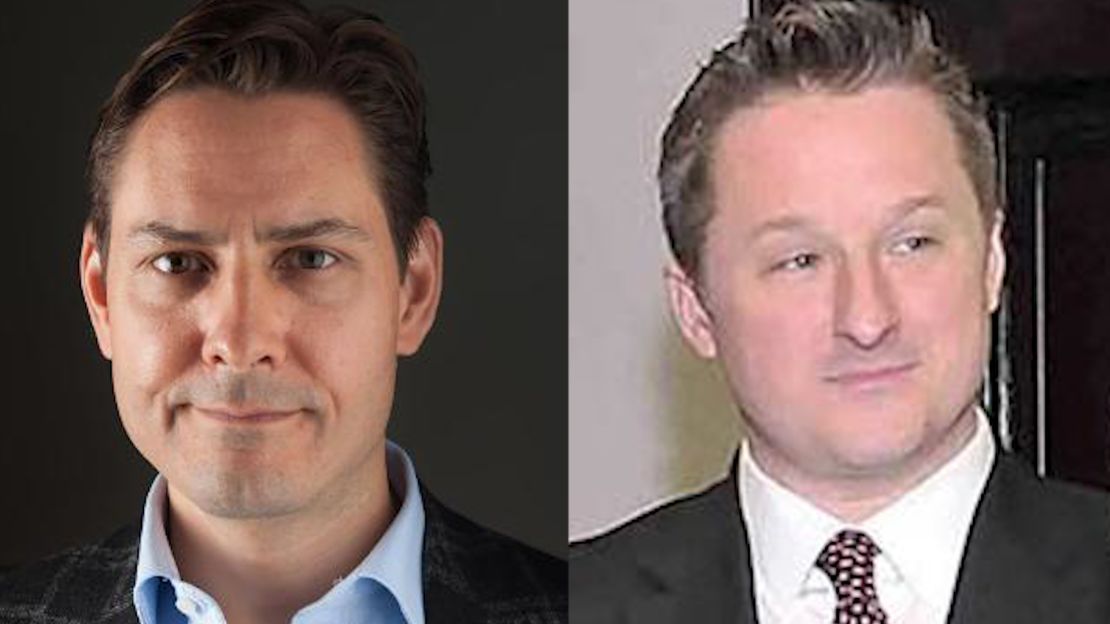The United States has spoken out forcefully against China’s prosecution of two Canadian men for spying.
In a statement Monday, Secretary of State Mike Pompeo said Washington was “extremely concerned” about the decision to file espionage charges against Michael Kovrig and Michael Spavor, who have been detained in China since 2018.
“These charges are politically motivated and completely groundless,” Pompeo said. “The United States stands with Canada in calling on Beijing for the immediate release of the two men and rejects the use of these unjustified detentions to coerce Canada.”
Kovrig and Spavor were detained in the weeks following the arrest in Vancouver of Meng Wanzhou, chief financial officer of the Chinese technology company Huawei in late 2018, on charges filed in the US.
US prosecutors want Meng to stand trial on multiple charges, including bank fraud and violating US sanctions against Iran.
Late last month, a Canadian judge ruled the extradition case against her could proceed, in what China’s representatives to the country called a “grave political incident.”
Within weeks, new charges were announced against Kovrig, a former Canadian diplomat and NGO worker, and Spavor, who founded a North Korea tourism company.
China’s legal system is beholden to the ruling Communist Party and is known for its exceedingly high conviction rate.
On Friday, Chinese Foreign Ministry spokesman Zhao Lijian said the evidence against the two Canadians was “solid” and the “facts are clear.”
Zhao denied reports that the two men had been denied access to consular assistance, saying visits were suspended due to the coronavirus pandemic.

Speaking to CNN last year, Guy Saint-Jacques, who served as Canada’s ambassador to China from 2012 to 2016, said that what consular visits the men had were highly limited, and they had had no access to lawyers or visits from family.
“In both cases they receive consular visits once every month, exactly 30 minutes, with someone there watching all the discussion,” he said. “These mainly serve to give them news of their family, and give them books and other reading material. It’s very difficult for them, they are waiting and they have no idea when and how they might be released.”
In his statement, Pompeo said Washington echoed “Canada’s call for immediate consular access to its two citizens, in accordance with the Vienna Convention on Consular Relations, as China has prohibited such access for almost six months, and the world has no knowledge of the two Canadians’ condition.”
In a Washington where China hawkishness is the default, Pompeo has emerged as a tough voice on Beijing, blasting Chinese moves in the South China Sea and Hong Kong, as well as the treatment of Uyghur Muslims in Xinjiang.
Following a meeting with Chinese diplomat Yang Jiechi in Hawaii last week – of which few details were released – Pompeo urged European leaders to “take off the golden blinders of economic ties and see that the China challenge isn’t just at the gates; it’s in every capital, it’s in every borough, it’s in every province.”
“Europe faces a China challenge, just as the United States does, and as – just as our South American, African, Middle Eastern, and Asian friends do too,” Pompeo said.
His hard line has made him a figure of loathing in Chinese media, where editorials regularly rail against him. Last week, Zhao, the foreign ministry spokesman, accused him of having a “deep-rooted Cold War mentality and ideological bias.”




